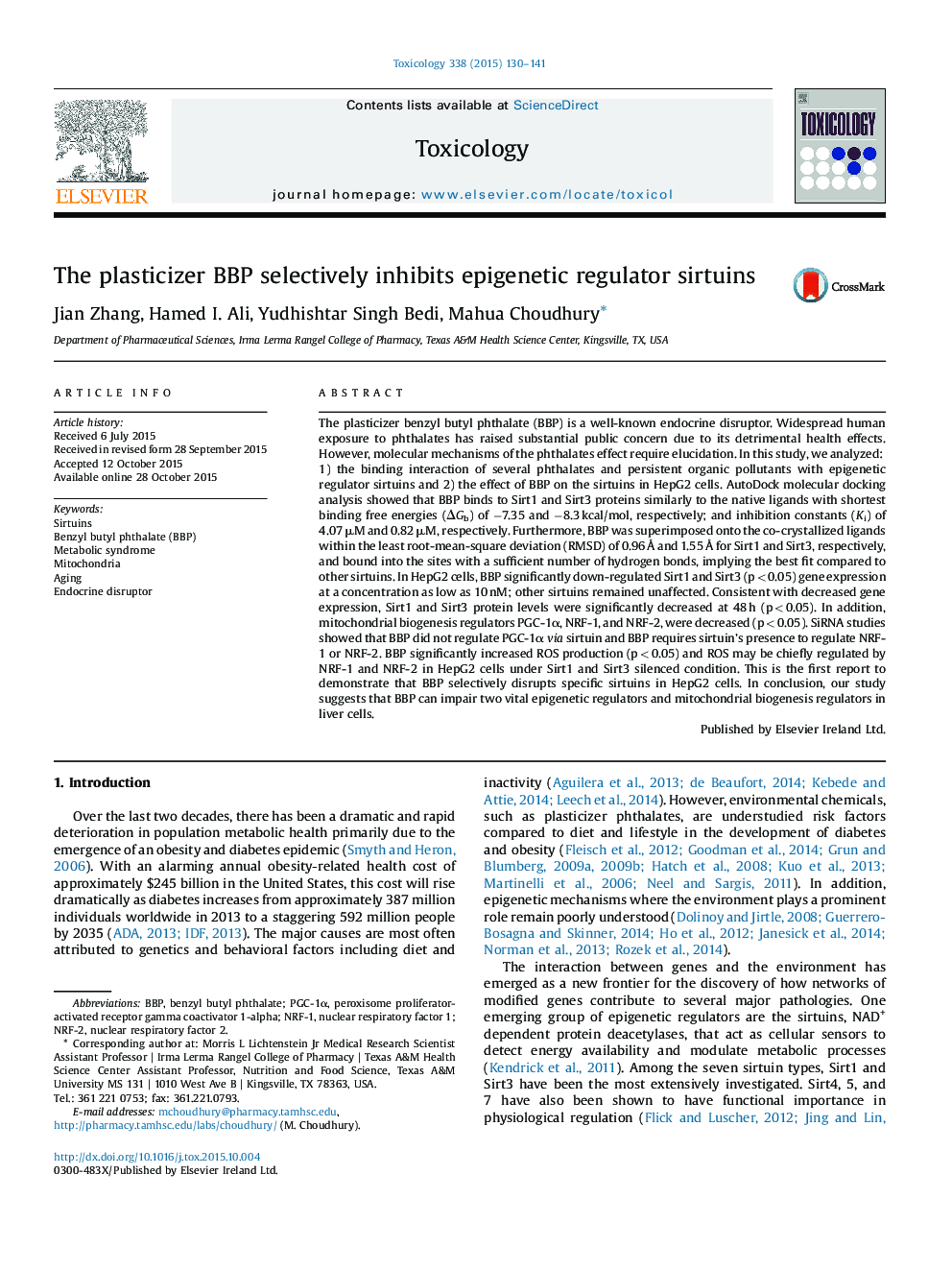| کد مقاله | کد نشریه | سال انتشار | مقاله انگلیسی | نسخه تمام متن |
|---|---|---|---|---|
| 5858967 | 1562318 | 2015 | 12 صفحه PDF | دانلود رایگان |

- In silico molecular docking studies showed that the plasticizer benzyl butyl phthalate (BBP) can bind to sirtuins.
- BBP decreased only Sirt1 and Sirt3 gene and protein expression in HepG2 cells.
- BBP decreased the mitochondrial biogenesis regulator gene expression in HepG2 cells.
- BBP increased reactive oxygen species levels in HepG2 cells.
The plasticizer benzyl butyl phthalate (BBP) is a well-known endocrine disruptor. Widespread human exposure to phthalates has raised substantial public concern due to its detrimental health effects. However, molecular mechanisms of the phthalates effect require elucidation. In this study, we analyzed: 1) the binding interaction of several phthalates and persistent organic pollutants with epigenetic regulator sirtuins and 2) the effect of BBP on the sirtuins in HepG2 cells. AutoDock molecular docking analysis showed that BBP binds to Sirt1 and Sirt3 proteins similarly to the native ligands with shortest binding free energies (ÎGb) of â7.35 and â8.3 kcal/mol, respectively; and inhibition constants (Ki) of 4.07 μM and 0.82 μM, respectively. Furthermore, BBP was superimposed onto the co-crystallized ligands within the least root-mean-square deviation (RMSD) of 0.96 à and 1.55 à for Sirt1 and Sirt3, respectively, and bound into the sites with a sufficient number of hydrogen bonds, implying the best fit compared to other sirtuins. In HepG2 cells, BBP significantly down-regulated Sirt1 and Sirt3 (p < 0.05) gene expression at a concentration as low as 10 nM; other sirtuins remained unaffected. Consistent with decreased gene expression, Sirt1 and Sirt3 protein levels were significantly decreased at 48 h (p < 0.05). In addition, mitochondrial biogenesis regulators PGC-1α, NRF-1, and NRF-2, were decreased (p < 0.05). SiRNA studies showed that BBP did not regulate PGC-1α via sirtuin and BBP requires sirtuin's presence to regulate NRF-1 or NRF-2. BBP significantly increased ROS production (p < 0.05) and ROS may be chiefly regulated by NRF-1 and NRF-2 in HepG2 cells under Sirt1 and Sirt3 silenced condition. This is the first report to demonstrate that BBP selectively disrupts specific sirtuins in HepG2 cells. In conclusion, our study suggests that BBP can impair two vital epigenetic regulators and mitochondrial biogenesis regulators in liver cells.
Journal: Toxicology - Volume 338, 2 December 2015, Pages 130-141